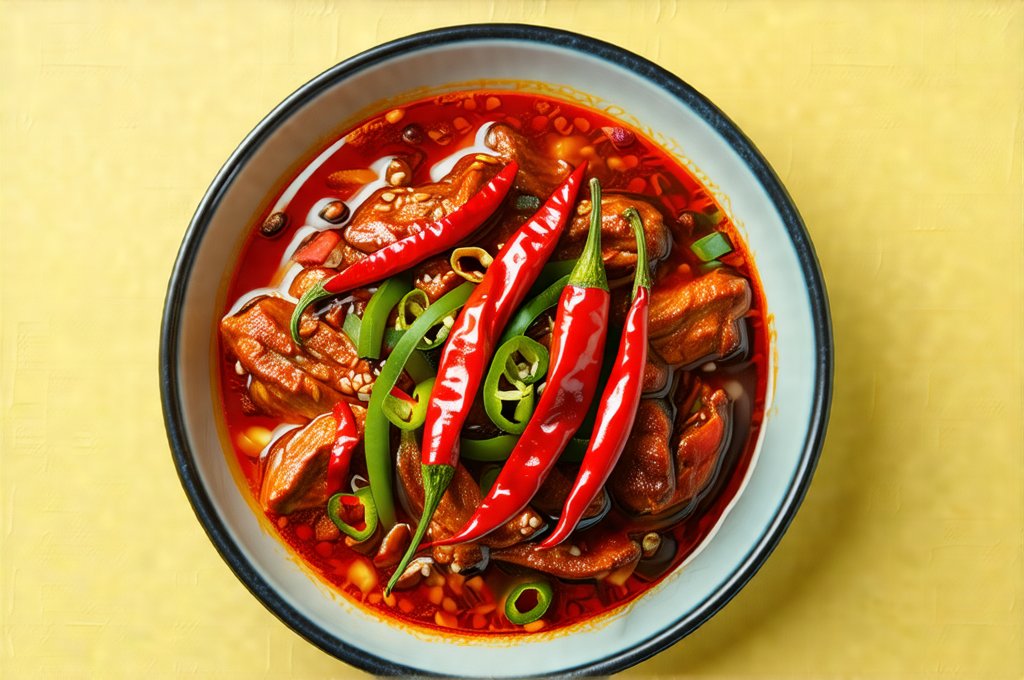Acid reflux, that uncomfortable burning sensation in your chest, is something many people experience occasionally. It’s often associated with certain foods, and spicy food consistently tops the list of perceived triggers. But is this a universal truth? Does every bite of chili pepper inevitably lead to heartburn? The relationship between spicy food and acid reflux isn’t as straightforward as it seems. While many individuals report increased symptoms after consuming capsaicin-rich dishes, the science behind it reveals a more nuanced picture, influenced by individual physiology, the type of spice, and even how you consume it. Understanding these complexities is key to navigating spicy cuisine without constant discomfort.
The common assumption that spices directly cause acid reflux stems from the immediate sensation of heat they produce. This heat can feel similar to the burning experienced during heartburn, leading people to naturally associate the two. However, this initial warmth isn’t necessarily a sign of increased stomach acid; it’s more about how our nervous system interprets capsaicin – the chemical compound responsible for the “spicy” sensation. Moreover, the body often responds to perceived threats (like spice) by increasing digestive processes, which can sometimes seem like reflux but are actually part of the normal physiological response. Ultimately, pinpointing whether spicy food is a personal trigger requires understanding your own body and how it reacts. Perhaps are trigger foods aren’t always obvious to everyone.
The Science Behind Spicy Food & Digestion
Spicy foods don’t inherently increase stomach acid production. In fact, capsaicin has been shown in some studies to actually increase gastric motility – the speed at which food moves through the digestive system. This can sometimes be beneficial, preventing food from sitting in the stomach for too long and potentially reducing reflux episodes. However, this isn’t a consistent effect across all individuals. The impact of capsaicin on lower esophageal sphincter (LES) function is more complex. The LES is a muscular valve that prevents stomach acid from flowing back up into the esophagus; its proper functioning is critical to preventing acid reflux.
- Some research suggests capsaicin can temporarily relax the LES, making it easier for acid to creep upwards.
- Conversely, other studies indicate regular consumption of capsaicin might desensitize nerve fibers in the esophagus, reducing perceived heartburn symptoms over time. This phenomenon is known as functional dyspepsia and explains why some people who regularly eat spicy food experience less discomfort than those unaccustomed to it.
- The type of spice matters too. Chili peppers contain different levels of capsaicinoids – the compounds that create the heat. Some varieties are significantly more potent than others, leading to varying degrees of impact on digestive function and LES behavior.
The body’s response to spicy food is also heavily influenced by individual sensitivity. Those with pre-existing conditions like gastroesophageal reflux disease (GERD) or irritable bowel syndrome (IBS) might be more susceptible to experiencing symptoms after consuming spicy foods, as their digestive systems are already compromised. Even factors like stress levels and sleep quality can play a role in how your body handles spicy meals. It’s rarely a simple case of “spicy food = acid reflux.” If you suspect IBS is playing a part, it’s worth exploring are spicy foods always problematic?
Understanding Individual Triggers & Sensitivities
Identifying your personal triggers is paramount. What one person finds mildly irritating, another might find debilitating. Keeping a food diary can be incredibly helpful. For at least two weeks, meticulously record:
1. Everything you eat and drink.
2. The level of spice (mild, medium, hot).
3. Any symptoms experienced – heartburn, bloating, nausea, etc. – along with the timing relative to your meal.
This detailed log will help reveal patterns and pinpoint specific spices or dishes that consistently cause problems for you. It’s important to be honest with yourself and note even seemingly minor reactions. Don’t immediately eliminate all spicy foods; instead, focus on understanding which ones are problematic and in what quantities. You might find you tolerate certain peppers better than others, or that cooking methods influence your reaction – for instance, raw chili versus cooked chili sauce. Perhaps are digestive issues related to food sensitivities?
Beyond the spice itself, consider accompanying factors. Eating a large meal before bed significantly increases the risk of acid reflux, regardless of whether it’s spicy. Similarly, combining spicy food with other known triggers like fatty foods, chocolate, or caffeine can exacerbate symptoms. It’s also crucial to assess your overall digestive health. If you have underlying issues like GERD, work closely with a healthcare professional to manage the condition and understand how spicy food fits into your dietary plan. Remember, managing reflux isn’t always about complete avoidance; it’s often about mindful consumption and identifying personalized strategies for minimizing discomfort. Can acid reflux be linked to food sensitivity?
The Role of Cooking Methods & Food Combinations
How you prepare and combine spicy foods can dramatically impact their effect on acid reflux. Raw chili peppers are generally more likely to cause issues than cooked ones, as cooking breaks down some of the compounds that irritate the digestive system. Similarly, fermenting chilies (as in hot sauce) can alter their chemical composition and potentially reduce their irritating effects for some individuals.
- Marinating spicy foods with acidic ingredients like vinegar or citrus juice can intensify reflux symptoms, so be mindful of these combinations.
- Counterbalancing spice with alkaline foods – such as bananas, melons, or almonds – may help neutralize stomach acid and alleviate discomfort.
- Cooking methods also matter. Grilling or baking tend to be gentler on the digestive system than frying, which adds extra fat that can contribute to reflux.
Food combinations play a significant role. Avoid pairing spicy food with other known triggers like:
* High-fat foods: These slow down digestion and increase the risk of acid backflow.
* Carbonated beverages: The bubbles can put pressure on the stomach and LES.
* Chocolate: Contains compounds that relax the LES.
Furthermore, eating smaller, more frequent meals instead of large ones reduces the amount of food in your stomach at any given time, lessening the chance of reflux. Chewing thoroughly aids digestion and allows you to better gauge your tolerance for spice. Ultimately, experimenting with different cooking methods and pairings is key to finding what works best for your digestive system. Are gas and bloating always food related?
Lifestyle Factors & Long-Term Management
While focusing on diet is essential, lifestyle factors are equally important in managing acid reflux triggered by spicy food – or any food, for that matter. Maintaining a healthy weight reduces pressure on the abdomen, lessening the likelihood of acid escaping into the esophagus. Elevating the head of your bed by 6-8 inches can also help prevent nighttime reflux. Avoid eating within 2-3 hours of bedtime to allow adequate time for digestion.
Stress management techniques are crucial, as stress can exacerbate digestive issues and increase sensitivity to food triggers. Practices like yoga, meditation, or deep breathing exercises can help calm the nervous system and improve overall gut health. Regular exercise promotes healthy digestion but avoid strenuous activity immediately after eating.
- Consider limiting caffeine and alcohol intake, as these substances can relax the LES.
- Smoking also weakens the LES and contributes to acid reflux, so quitting is highly recommended.
- Staying hydrated throughout the day aids digestion and helps neutralize stomach acid.
- Can poor sleep trigger food reactions?
It’s important to remember that self-treating isn’t a substitute for professional medical advice. If you experience frequent or severe acid reflux symptoms, consult with a doctor to rule out underlying conditions like GERD and discuss appropriate treatment options. Long-term management often involves a combination of dietary modifications, lifestyle changes, and, in some cases, medication. The goal is not necessarily to eliminate spicy food entirely but to find a sustainable balance that allows you to enjoy your favorite flavors without compromising your comfort. Can low acid diets help with food intolerance?


















